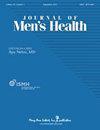双重疾病管理理论在酒精性心肌病合并心力衰竭患者中的应用效果
IF 0.6
4区 医学
Q4 Medicine
引用次数: 0
摘要
探讨双重疾病管理理论在酒精性心肌病合并心力衰竭患者出院准备服务中的应用效果。对70例男性酒精性心肌病心力衰竭患者进行回顾性研究。所有患者于2021年9月至2022年9月住院。以奇数表示对照组,以偶数表示观察组,每组35例。对照组采用常规护理,观察组采用在对照组基础上建立的基于双重疾病管理理论的护理模式。比较两组患者出院准备程度、二元应对评分、自我效能评分、自我护理能力评分和护理依从性。观察组患者出院准备程度、患者及照顾者支持应对得分、自我效能感和自我照顾能力得分均较对照组提高,差异有统计学意义(p <0.05)。观察组护理依从性为91.4%,差异有统计学意义(p <0.05),高于对照组(71.4%)。本研究结果提示,将双重疾病管理理论应用于常规护理中,可提高酒精性心肌病心衰患者的护理依从性、自我效能感和自我护理能力。因此,双重管理理论可以有效地提高患者的支持、反应水平和患者的护理依从性。本文章由计算机程序翻译,如有差异,请以英文原文为准。
Application effect of dual disease management theory in patients with alcoholic cardiomyopathy and heart failure
This paper explores the effect of application of dual disease management theory in the discharge readiness service for patients with alcoholic cardiomyopathy and heart failure. A retrospective study of 70 male patients with heart failure due to alcoholic cardiomyopathy was conducted. All patients were admitted in the hospital from September 2021 to September 2022. The control group was identified through an odd number, and the even number was the observation group, with 35 cases in each group. The control group received routine nursing care, and the observation group received a nursing model based on dual disease management theory, developed on the basis of the control group. The assessment criteria including the discharge readiness, binary coping score, self-efficacy score, self-care ability score and nursing compliance were compared between the two groups. The discharge readiness, patient and caregiver support coping score, self-efficacy and self-care ability scores of the observation group improved, compared to those of the control group, the difference was statistically significant (p < 0.05). The nursing compliance of the observation group was 91.4 %, statistically significantly higher (p < 0.05), compared to that of the control group (71.4%). The findings in this paper suggest that dual disease management theory applicable to the routine nursing can improve the nursing compliance and self-efficacy of patients with alcoholic cardiomyopathy and heart failure and self-care ability. Therefore, the dual management theory can effectively contribute to improving the level of patient support, response and patient care compliance.
求助全文
通过发布文献求助,成功后即可免费获取论文全文。
去求助
来源期刊

Journal of Men's Health
Medicine-Urology
CiteScore
0.70
自引率
28.60%
发文量
153
审稿时长
10 weeks
期刊介绍:
JOMH is an international, peer-reviewed, open access journal. JOMH publishes cutting-edge advances in a wide range of diseases and conditions, including diagnostic procedures, therapeutic management strategies, and innovative clinical research in gender-based biology. It also addresses sexual disparities in health, life expectancy, lifestyle and behaviors and so on. Scientists are encouraged to publish their experimental, theoretical, and descriptive studies and observations in as much detail as possible.
 求助内容:
求助内容: 应助结果提醒方式:
应助结果提醒方式:


